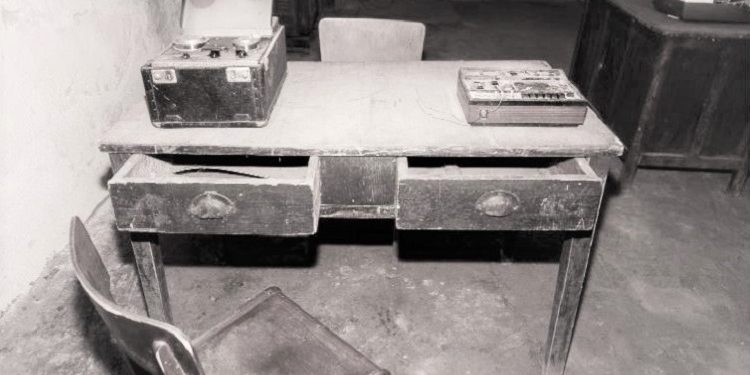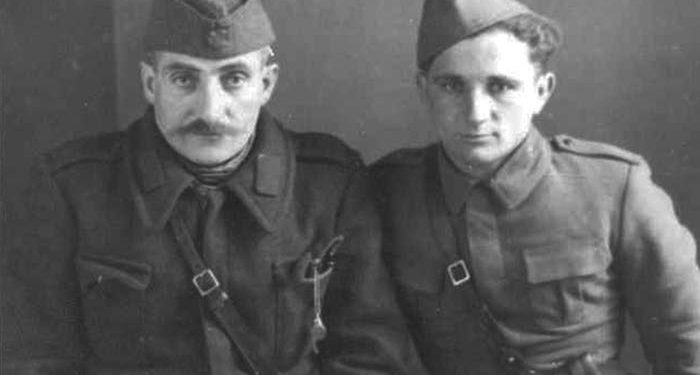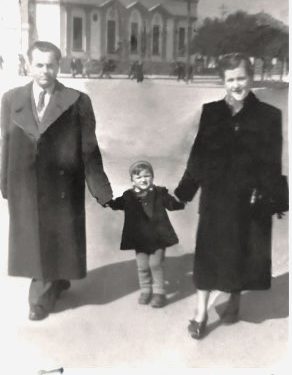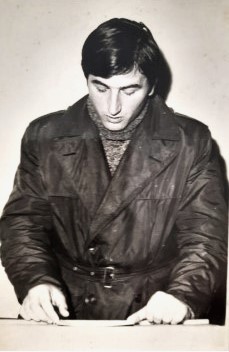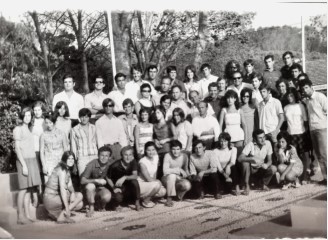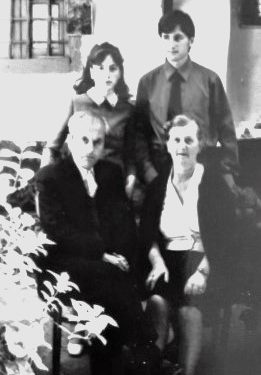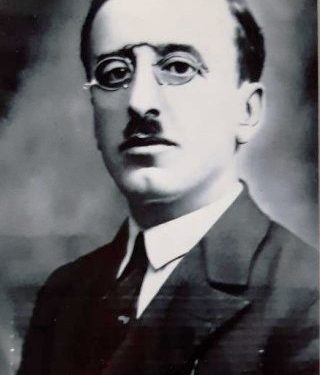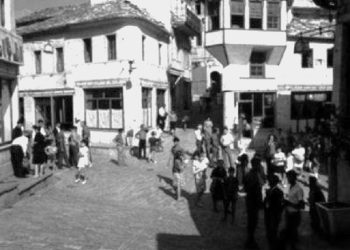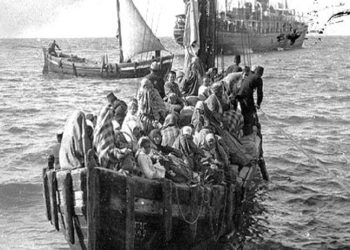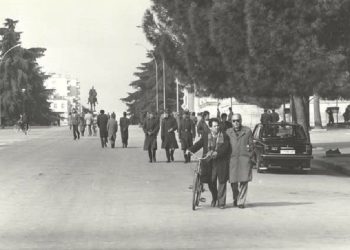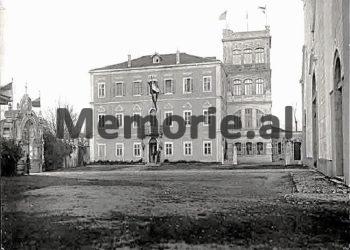By Nestor Topencharov
The ninth part
THE DRAMA OF LIFE
(THE STORY OF A FAMILY)
I dedicate this book to: All fellow sufferers. Their families. And in particular, to people who did not have the opportunity to tell the odyssey of life, during the communist dictatorship.
FORE SAYING
Memorie.al / I were born in the city of Korça, on October 22, 1953. I left Albania in October 1990, after we were given the right to repatriate to Yugoslavia (now North Macedonia) . In June 1992, I immigrated to Italy, where I still live today. Although I have been away for 32 years, I did not cut ties, as Albania was the country of my birth, where I spent 37 years, and that part of my blood is Albanian. Years later, the ties with Albania were strengthened, as I also took my wife from Durrës. We came every year on vacation, but the short time of our stay meant that many contacts were cut off. However, true friends and comrades remained forever in my heart.
In the last three years, I did not have the opportunity to visit Albania. But during 2022, I came several times. My commitment on the one hand and the coincidence on the other, made it possible for me to re-establish connections with friends and colleagues whom I had not seen for decades. Knowing my past, some of them advised me to write down what had happened in my life. At first, this idea seemed like a utopia to me, since even though I had been a good student; I had no inclination towards drafting. Then I reflected. I would just write my story, true events, where not much inspiration was needed. Perhaps a writer would know how to present these events, as a true pen artist knows. While I will write them, without many descriptions: briefly, simply, naked, as they happened.
Something else that pushed me even more to write this book was an interview on TV Klan, which I saw in October of this year, directed by the well-known journalist Blendi Fevziu. I didn’t seek revenge. But I didn’t even have justice. With the help of this book, I will make known to the Albanian public opinion, the role of the individuals who contributed to my suffering and that of my family. And today, I am putting my finger on these “beings”, not for the task they had, but for the way they performed it. I will start my writing with my grandfather, from my mother’s side, to continue with my father, where I will touch on the most important moments of their lives. This will help the reader to know my background.
Then I will also talk about myself. In this book I will also tell some events, one more dramatic than the other, that happened to people I had the honor of knowing. I am glad that many books have been published on the suffering and persecution of “enemies of the people” and their families in internment camps and prisons during the communist dictatorship. I was able to read some of these works. I believe that this book, in a modest way, will contribute to know even more the inhumane methods of the State Security, the way they created accusations and how they destroyed people and families to keep the people under terror.
The author
December, 2022
Continues from last issue
CHAPTER TWO
We are at the end of 1975, when the wave of deportations and imprisonments began in the city of Korça. Whole families, one morning, saw policemen and trucks at the door…! But even this was a tragedy in itself. Pirro’s sister was married and had two little daughters.
Her husband, an honest and simple man, was originally from the village and his family had no political problems. After the meeting in the neighborhood, they decided to deport this family. At that time, Ali had just been released from prison, while Skenderi was doing the second prison, for escape.
Ali also participated in the meeting. He initially defended his sister’s family, unrelated to their political convictions. He then asked that in return, he be deported as a former political prisoner. But on the other hand, the request fell on deaf ears. No one changed the decision. Then Ali began to insult the authorities and the dictatorship. They put the bars in place and gave him ten years. Ali’s sacrifice did not avoid the exile of his sister’s family.
At this time, Pyrrhus ends his exile. Now that he was free, he could return to Korça. But it was clear that communism was not yet satisfied with its prisons and exiles. He now had a great deal of experience. Therefore, assessing the situation, he thought that it was best not to stand out in the city.
It would stand between the mountains, in the sawmills. His sister’s family was also interned in that area and he was able to help them financially. Although he did not return to the city, he still could not avoid the third arrest, in July 1977.
When after the arrest he was taken to Dega, Pirro had made it clear to her superiors that he wanted to be alone in the dungeon. Otherwise, the provocateur they would put in the cell, they would find a corpse. The branch and the investigation realized that they could not play games with Pirro. He was well acquainted with their base methods, and when they listened to the warning he gave them, they left him alone in the dungeon that night. The next day, they put him in a casket to us.
At that time after the sentence, they also brought us a boy in his thirties. His name was Pandi. They had arrested him after the suicide of his younger brother, Maqos. At the time, this story made a lot of noise in the city. Maqo had been arrested and as an investigator, there was the same one who physically abused me.
Apparently this interrogator had no problem beating prisoners. He had tried this method with Maqo, who found the moment and hit him. By the time he took out his revolver to shoot her, they had fought and a shot was heard. Then Maqo had jumped from the window and had crossed the wall of Branch.
After this event that shocked the Security, orders were given to reinforce the border. Special troops came from Tirana and large checks were made in the city. Maqo resisted for several days, on the terrace of a tall building, from where he controlled the movements of the Security. Finally, imagining the treatment he would receive if he fell into their hands, he killed himself.
It was said that the Minister of the Interior of that time had said:
– “We need brave people like Maqo, if they were on our side”. The tragedy that this boy lost his life at the most beautiful age. But neither the minister nor anyone from the Security bodies spoke about this. After this tragedy, they searched the house, where Pandi also had a small office.
There they find a caliper and some English keys and condemn him for embezzlement of socialist wealth. They certainly did this to take revenge. Pandi was an educated boy. He came from an old and respected citizen family. He was proud of his brother.
At this time, a convict is brought to us from Spaçi. His name was Leonard Priest. He had been a literature teacher at the Bilishti high school. Almost two years ago, he was arrested and sentenced to 10 years for agitation and propaganda. Leonardi was young in age and a man of culture. He mastered several foreign languages, including English.
He showed me a novel about the life of Pyrrhus of Epirus, which he asked me to retell in English. Then, from Tolstoy’s literature, a story, which even today I have not forgotten, one of those stories where Tolstoy was criticized by the regime, as he preached forgiveness, reconciliation with evil, humility, faith in God, etc.
This acquaintance with Leonard was a new experience for me. He had been brought in after arresting one of his cousins, an officer, Thoma, and pressuring him to become a witness. He did not bow down and the investigator, in order to take revenge, did not notify his family, to bring him clothes and food. For food, there was no problem, because solidarity was created between us.
A young man with a physical ability was also brought to our room. They called him Adam. He had been in and out of the dungeons of Korça many times, because of the frequent fights he had. When I got to know him, I realized that it wasn’t always his fault.
He was a man who tried to take under his protection the smallest, the weakest. Adem’s older brother, Xheta, was convicted for agitation and propaganda, when, after a provocation, in a moment of nervousness, he insulted the government. Adam was proud of this.
He was pleased to be among the political prisoners. When he found out that during the period of punishment Leonardi had known his brother, every food he had he shared equally with him. Adem was allowed enough food, as he had nervous problems, just like his brother. During the time we were together, they gave him medicine to keep him calm.
One afternoon they bring us a little boy, about 12 years old. He sat down in the middle of the room and calmly told us what had happened to him. He was with some friends of his age and with the money they had collected, they had bought a bottle of vodka.
As young as they were, in their first contact with alcohol, the drink had taken its toll. To the Kalamai, it seemed as if the world was at their feet. They started rioting on the boulevard. Our character went further.
He took a stone and broke the glass of a shop window. A horse that happened to be nearby had caught him and brought him to Branch. This minor was not captured by the law, but they brought him to us to teach him a lesson.
With this action, the investigator made a mistake, because when this little boy saw the environment, instead of being scared, he created security. The eye did not bother him and the dungeon was no longer a problem for him. Then Adam made a place next to him, this little brave.
We had been asleep for some hours, when I was awakened by the sound of the keys of the iron gate of the inner corridor. It was 23.00. The guards were changing. After a while I heard our door open. The policeman, on the other hand, was trying, under the dim light, to distinguish the sleeping convicts.
Apparently he didn’t get to see what he wanted and started knocking lightly on the door. Then the knocking got louder. Almost everyone fell asleep. Only the little boy slept like a lamb.
When the policeman saw the little boy, he started talking to him to get up and approach the counter. We recognized from the voice that the policeman was Qemali. At this moment, cockroaches jumped on Adam. He quickly approached the counter. Luckily the door was strong; it would have torn it open. He started cursing him root and branch. We could hardly put him down because he was furious. Qemali immediately ran to the phone to report the incident to the guard officer.
When they found out that it was about Adam, they told Qemali not to deal with him. Then, as if thinking, he comes back to our counter to reconcile with Adam. When he turned to him, he heard curses from his mother and wife. After that, that night, the counter was not opened again. Being the scoundrel that he was, Qemali had heard about this little boy and wanted to know him, so that when he saw him in the city, he would provoke him and hurt him. But the plan failed.
The next morning, Haxhiu arrives, and after jokingly teasing the boy, frees him. Adam was restless all day, and walked around the room almost all the time. It continued like this the next day, even though Leonard tried to calm him down and the rest of us said some kind words to him.
This situation continued until the afternoon, when he heard the voices of the policemen who were bringing us dinner. Among them he recognized Qemal’s voice. He quickly turned to us and asked us to fold the blankets. These he placed one on top of the other behind the door, creating a kind of high mattress. Then he knocks on the counter and climbs on top of the blankets, lowers his pants and with them the underwear and squeezes his butt against the net of the counter, right where the policeman was sticking his face out on the other side.
At this moment the counter opens and a great silence reigns. Apparently the one on the other side was speechless at the sudden sight that appeared to him. Since the silence lasted a little too long, Ademi turns around from the side of the counter and noticed another policeman. He started apologizing: – “Commander Nevzati was taken, I didn’t do it for you, I had the dog Qemali with him”.
Then Nevzat spoke to him a couple of words to calm him down and that’s how this comedy ended. After a few days, the head of the investigation, Reshati, entered the courtroom. After glancing around the room and all of us, he turned to Pyrrhus:
– “You took Zogist, did you think we would let him go free”?
Immediately came the answer of Pyrrhus:
– “It is in your interest to punish innocent people.”
Reshat’s fury was unrestrained. He grabbed Pirro by the back of the neck, pulled him to the center of the room and after spinning him 3-4 times, let him fall. But he did not achieve this goal either, as Pirro resisted this violence. I was glad for the strength of this fellow sufferer.
After Pyrrhus it was me. Reshat passed me close, breathing hard. I don’t know if it was because of the effort he made, the excess fat that covered him, or both. He stopped in front of Gaqo.
– “Okay, this one (for me), is a Yugoslav, you are a Yugoslav!” (Gaqo’s wife was Macedonian).
He then turns to Leonard, saying:
– “Revisionist”!
And then the epithets that were given to others:
– “Enemy’s brother! Putschist! Fireman! Ballistic”!
It seemed like an anomaly.
Finally, he stopped in front of Yzeir and asked Haxhiu, who was accompanying him:
– “Why did you put this boy among the enemies? As soon as you find another place”!
After this order, he left.
I told you above that Yzeir was sentenced to seven years for agitation and propaganda. He too had been a victim of time. He came from a simple family, from a village deep in the highlands of Korça. Poor as can be. One day he put on his army jacket and went out into the center of the village. He thought himself beautiful, desolate, and wanted the girls of the village to see him.
Someone had remarked to him that the minister’s order was that these clothes should be worn only in the choir. Perhaps influenced by the fact that the previous defense minister had turned out to be an “enemy”, Yzeiri said:
– “Who knows, even the minister can be an enemy”.
This echoed in the village. They arrested him and condemned him as an enemy, not a friend. Maybe Reshat had other plans for him. After a while, Haxhiu took away Yzeir from us. With my mother and sister, from the end of June, they made us meet at the inner door, separated by iron bars. I was calm. I told them not to worry about me, in a few months it would be the year and I would earn something with work. They should take care of the father, because he was old. This was the first and last meeting they gave me in Korça. Memorie.al
The next issue follows




